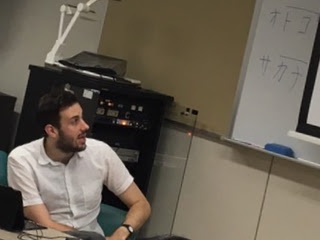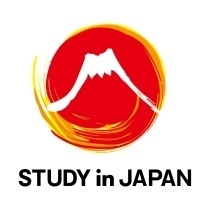Japanese Government (MEXT) Postgraduate Scholarships
MEXT Alumni Personal Experiences
Thomas Dallyn MA, PhD candidate in Linguistic Sciences
Japanese Government (MEXT) Postgraduate Scholarship
Hokkaido University from April 2012 – March 2013 as Research Student, April 2013 – present as PhD candidate
 After studying Japanese and Linguistics as an undergraduate, I wanted to pursue these interests further by studying the rules and structures of the language itself. This led me first to an MA in Phonetics and Phonology in the UK, where I wrote my thesis on the mechanics of Japanese pitch accent. For my PhD studies however, I was keen to study in Japan, where I would have access to native speakers, materials and subject expertise that simply wouldn’t be available anywhere else. I was introduced to MEXT by a university friend who had previously joined the program, and I soon realised that the postgraduate scholarship offered the perfect way to support myself during my studies.
After studying Japanese and Linguistics as an undergraduate, I wanted to pursue these interests further by studying the rules and structures of the language itself. This led me first to an MA in Phonetics and Phonology in the UK, where I wrote my thesis on the mechanics of Japanese pitch accent. For my PhD studies however, I was keen to study in Japan, where I would have access to native speakers, materials and subject expertise that simply wouldn’t be available anywhere else. I was introduced to MEXT by a university friend who had previously joined the program, and I soon realised that the postgraduate scholarship offered the perfect way to support myself during my studies.
After the initial screening, I began to search for a suitable host institution. I wrote to several professors to discuss joining their research group, and at Hokkaido University’s Graduate School of Letters, I found a supervisor who not only specialized in my field, but also had a good deal of experience in supervising foreign students.
Initially gaining admission as a research student, that one-year period allowed me to prepare for the entrance exams and begin conducting my own research. I took classes both at the university’s International Student Centre, studying academic writing and advanced vocabulary, as well as in my own department, where l familiarized myself with the specific theories and frameworks that characterise linguistic research here. Having already taken an MA in the UK, I chose to proceed directly to the doctoral course, though taking the (typically two-year) master’s course and then moving on to a PhD can also be covered by the scholarship.
My research focuses on the accent and intonation of dialects in northern Japan, and so a typical cycle involves preparing survey materials, contacting native informants, travelling to the survey site to interview them, and finally presenting an analysis of the data I’ve gathered to my seminar group. This doesn’t require much beyond a laptop and a dictaphone, so I only need to pay for travel and accommodation, which can usually be covered using the MEXT stipend. For other academic expenses, such as purchasing special equipment or travelling to conferences, additional funding may be available from your supervisor’s research funds, your department, or outside sources such as academic societies and the JSPS.
The research environment you work in will depend on your field, supervisor and colleagues, but the programme here places a heavy emphasis on independent research, giving me good deal of freedom as to how I structure my study. The flexible, self-directed nature of the program was particularly helpful for me, as I’m currently balancing my studies with the demands of two small children. This was another reason why living and working in Sapporo, where Hokudai has its main campus, was a big plus for me: the city has all the amenities typical of a large Japanese city, but with much more spacious and relaxed feel than most others can offer. Coupled with a very reasonable cost of living and easy access to Hokkaido’s incredible countryside, it’s been a fantastic environment for family life.
Since my scholarship period ended last year, I’ve been continuing work on my doctoral thesis while lecturing at a local technical college, where I apply what I’ve learned during my studies to teach phonetics and acoustics to aspiring speech therapists. My time on the scholarship has provided me with many great opportunities like this, and I think they will form a sound basis for a future career in teaching and research.


